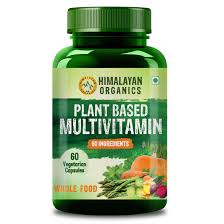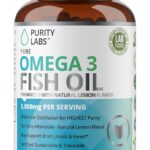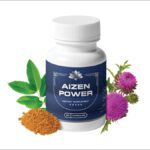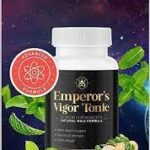- Rich in Nutrients: Plant-based supplements are often rich in essential vitamins, minerals, antioxidants, phytonutrients, and other bioactive compounds naturally present in plants. These nutrients are vital for various bodily functions, including immune function, metabolism, and cellular health.
- Bioavailability: Many plant-based supplements provide nutrients in a form that is readily absorbed and utilized by the body. Plant-derived nutrients are often more bioavailable than synthetic counterparts, allowing for better absorption and utilization by the body’s cells.
- Supports Overall Health: Plant-based supplements offer comprehensive nutritional support for overall health and vitality. They can help fill nutrient gaps in the diet, support organ function, promote energy production, and maintain optimal health and well-being.
- Cardiovascular Health: Certain plant-based supplements, such as omega-3 fatty acids from algae or flaxseed, and antioxidants like resveratrol from grapes or polyphenols from green tea, may support cardiovascular health by helping to lower cholesterol levels, reduce inflammation, and support healthy blood pressure.
- Digestive Health: Many plant-based supplements contain fiber, prebiotics, and digestive enzymes that support digestive health and regularity. Fiber-rich supplements can help promote bowel movements, support gut microbiota diversity, and alleviate symptoms of digestive discomfort.
- Anti-Inflammatory Properties: Plant-based supplements are often rich in anti-inflammatory compounds, such as curcumin from turmeric, gingerol from ginger, and quercetin from onions and apples. These compounds may help reduce inflammation throughout the body, which is associated with various chronic diseases and conditions.
- Bone Health: Some plant-based supplements, such as calcium from algae, vitamin D from lichen, and vitamin K2 from fermented soybeans or natto, support bone health and help reduce the risk of osteoporosis and bone fractures.
- Weight Management: Certain plant-based supplements, such as green tea extract, Garcinia cambogia extract, and conjugated linoleic acid (CLA) from safflower oil, may support weight management by promoting fat metabolism, increasing satiety, and reducing appetite.
- Detoxification Support: Plant-based supplements containing detoxifying herbs and compounds, such as milk thistle, dandelion root, and chlorophyll-rich greens like spirulina and chlorella, support the body’s natural detoxification processes and help eliminate toxins and waste products.
- Environmental Sustainability: Plant-based supplements are often more environmentally sustainable than animal-derived supplements, as they require fewer natural resources, generate fewer greenhouse gas emissions, and have a lower ecological footprint overall.
It’s important to note that while plant-based supplements offer numerous health benefits, they should complement a balanced diet rich in whole foods. Individuals should also consult with a healthcare professional before starting any new supplement regimen, especially if they have underlying health conditions or are taking medications, to ensure safe and appropriate use.
Using plant-based supplements effectively involves several key considerations to maximize their benefits and support overall health:
- Choose Quality Products: Select plant-based supplements from reputable brands known for their quality, safety, and transparency. Look for products that have undergone third-party testing for purity, potency, and authenticity.
- Read and Follow Dosage Instructions: Read the product label carefully and follow the recommended dosage instructions provided by the manufacturer or healthcare professional. Dosage recommendations may vary depending on factors such as age, gender, health status, and specific health goals.
- Integrate into Daily Routine: Incorporate plant-based supplements into your daily routine consistently for optimal results. Choose a convenient time of day to take your supplements and establish a regular schedule to ensure compliance.
- Consider Timing and Formulation: Some plant-based supplements may be more effective when taken with food or at specific times of the day. Pay attention to any instructions regarding timing or formulation (e.g., capsules vs. powders) provided on the product label.
- Monitor Your Body’s Response: Pay attention to how your body responds to plant-based supplements and adjust your dosage or timing as needed. Monitor for any changes in symptoms, energy levels, or overall well-being, and consult with a healthcare professional if you have any concerns.
- Combine with a Balanced Diet: Plant-based supplements should complement a balanced diet rich in whole foods, including fruits, vegetables, whole grains, nuts, seeds, and legumes. Aim to obtain nutrients from a variety of sources to support overall health and well-being.
- Stay Hydrated: Drink plenty of water when taking plant-based supplements to aid in absorption and ensure proper hydration. Water helps facilitate the transport of nutrients throughout the body and supports various physiological processes.
- Be Patient and Consistent: It may take some time to notice the effects of plant-based supplements, particularly if you’re addressing underlying health issues or nutritional deficiencies. Be patient and consistent with your regimen, and give your body time to adjust and respond to the supplements.
- Consult with Healthcare Professionals: Before starting any new supplement regimen, especially if you have underlying health conditions or are taking medications, consult with a qualified healthcare professional. They can provide personalized advice, assess your individual needs, and help determine the most appropriate plant-based supplements for you.
- Monitor for Interactions: Be aware of potential interactions between plant-based supplements and medications or other supplements you may be taking. Certain supplements may interact with medications or exacerbate underlying health conditions, so it’s essential to discuss any concerns with your healthcare provider.
By following these guidelines and incorporating plant-based supplements into a holistic approach to health and wellness, you can optimize nutrient intake, support overall health, and enhance your well-being naturally.
Certainly! Here’s more detailed information on how to use plant-based supplements effectively:
- Understand Your Needs: Before choosing plant-based supplements, it’s important to understand your specific health goals and nutritional needs. Consider factors such as age, gender, activity level, dietary restrictions, and any underlying health conditions you may have.
- Research Ingredients: Take the time to research the ingredients in plant-based supplements and their potential health benefits. Look for scientific evidence supporting the efficacy and safety of the ingredients for addressing your specific health concerns.
- Start Slowly: If you’re new to plant-based supplements or introducing a new supplement into your regimen, start with a low dose and gradually increase as needed. This allows your body to adjust and reduces the risk of adverse reactions.
- Choose the Right Formulation: Plant-based supplements come in various forms, including capsules, tablets, powders, liquids, and gummies. Choose a formulation that aligns with your preferences, dietary restrictions, and lifestyle.
- Consider Absorption Factors: Some plant-based supplements may be better absorbed when taken with food, while others may be more effective on an empty stomach. Additionally, certain nutrients may enhance absorption when taken together (e.g., vitamin C enhances iron absorption).
- Read the Label: Carefully read the product label for information on dosage, serving size, and any additional instructions or precautions. Pay attention to the concentration of active ingredients and any potential allergens or additives.
- Timing: Consider the best time of day to take your plant-based supplements based on your individual needs and lifestyle. For example, some people prefer taking energy-boosting supplements in the morning, while others may take calming supplements in the evening to promote relaxation and sleep.
- Consistency is Key: Incorporate plant-based supplements into your daily routine consistently for optimal results. Set a reminder if needed to ensure you take your supplements regularly and adhere to the recommended dosage.
- Monitor Your Progress: Keep track of how you feel and any changes in your health or symptoms after starting a plant-based supplement regimen. It may be helpful to maintain a journal to note any improvements or side effects you experience.
- Consult with a Healthcare Professional: Before starting any new supplement regimen, especially if you have underlying health conditions or are taking medications, consult with a qualified healthcare professional. They can provide personalized recommendations based on your individual health status and help ensure safe and effective use of plant-based supplements.
- Combine with Healthy Lifestyle Habits: Plant-based supplements should complement a balanced diet and healthy lifestyle. Aim to eat a variety of nutrient-rich foods, stay physically active, manage stress levels, get adequate sleep, and practice other self-care habits to support overall health and well-being.
- Evaluate and Adjust: Periodically evaluate your supplement regimen to assess its effectiveness and make any necessary adjustments. Your health needs may change over time, so it’s important to reevaluate and modify your supplement regimen accordingly.
By following these guidelines and taking a proactive approach to using plant-based supplements, you can optimize their benefits and support your overall health and wellness naturally.
- Quality Matters: Choose high-quality plant-based supplements from reputable brands that prioritize purity, potency, and sustainability. Look for products that have been third-party tested for quality assurance and meet industry standards for safety and efficacy.
- Customize Your Regimen: Tailor your supplement regimen to address your individual health needs and goals. Consider factors such as age, gender, lifestyle, dietary preferences, and any specific health concerns you may have when selecting supplements.
- Avoid Over-Supplementation: While plant-based supplements can be beneficial, it’s important not to overdo it. Avoid taking excessive doses of supplements, as this can lead to imbalances, nutrient toxicity, and potential health risks. Stick to the recommended dosage guidelines provided by the manufacturer or healthcare professional.
- Be Patient and Persistent: It may take time to experience the full benefits of plant-based supplements, particularly if you’re addressing underlying health issues or nutritional deficiencies. Be patient and persistent with your supplement regimen, and give your body time to respond and adapt.
- Track Your Progress: Keep track of your supplement intake and any changes in your health or symptoms over time. Consider keeping a health journal or using a tracking app to monitor your progress and identify patterns or trends.
- Consider Combination Supplements: Some plant-based supplements combine multiple ingredients or nutrients to target specific health concerns or provide comprehensive support. Consider using combination supplements that address multiple aspects of health and wellness for added convenience and effectiveness.
- Rotate Supplements: To prevent tolerance buildup and ensure balanced nutrient intake, consider rotating or cycling your supplements periodically. This can help prevent nutrient imbalances and optimize absorption and effectiveness over time.
- Listen to Your Body: Pay attention to how your body responds to plant-based supplements and trust your instincts. If you experience any adverse reactions or discomfort, discontinue use and consult with a healthcare professional.
- Stay Informed: Stay updated on the latest research, trends, and developments in plant-based supplementation. Follow reputable sources of information, consult with healthcare professionals, and be open to exploring new supplements or approaches that may benefit your health and well-being.
- Maintain Healthy Habits: Remember that supplements are meant to complement, not replace, a healthy lifestyle. Focus on maintaining balanced nutrition, staying physically active, managing stress, getting enough sleep, and practicing self-care habits to support overall health and wellness.
By incorporating these additional tips and strategies into your approach to using plant-based supplements, you can maximize their benefits and support your journey toward optimal health and well-being.









